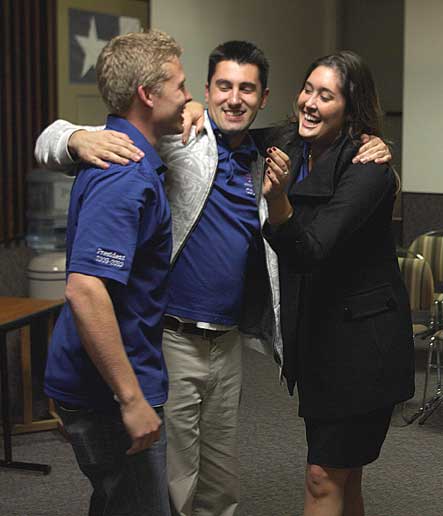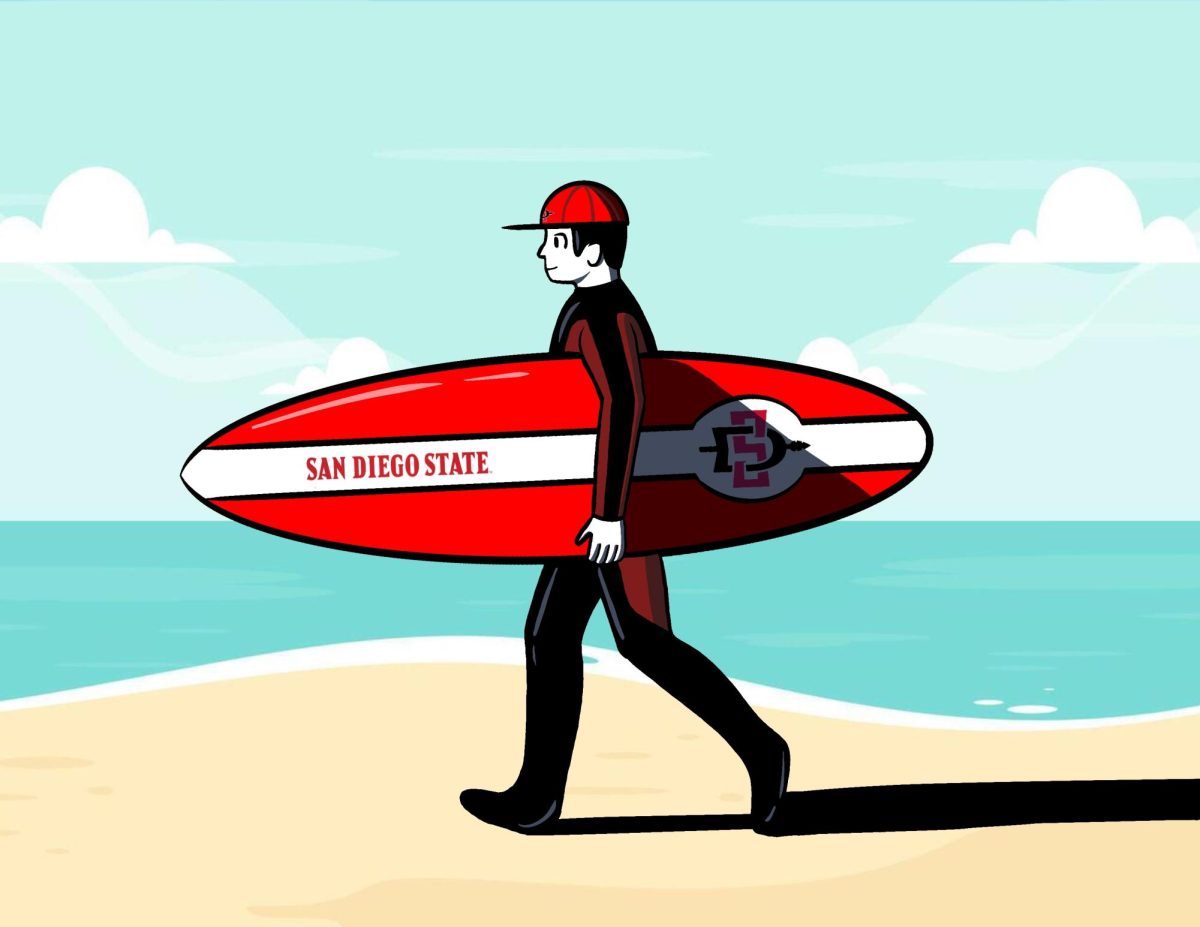 David J. Olender / Photo Editor
David J. Olender / Photo EditorLast year’s Associated Students executives earned $26,166 per person regardless of how many hours they worked.
Former executives Tyler Boden, Natalie Colli, Ignacio Prado, Alyssa Bruni and Jeremy Katz each clocked a different hour total, yet made the same wage for their employment.
Dan Cornthwaite, an A.S. adviser, said the reason all the executives are paid an equal amount is because it is specifically indicated in the organization’s bylaws.
“That’s been the policy in A.S. council for at least 30 years or more,” Cornthwaite said.
Last year’s A.S. executives were essentially compensated a total of $26,166; however, California labor laws do not allow part-time student workers to be salaried, so they were allotted an hourly wage of $10.53 per hour. The predetermined annual wage also serves as a limitation, which means last year’s A.S. executives could not earn more than $26,166.
For the 2009 / 2010 academic year, A.S. executives solely earned their hourly wages until their last paychecks. The final check included both the remaining amount of their budgeted earnings, and also retroactively remunerated them for the 2009 summer’s cost of living. The summer subsidy of $4,371 was formerly nonexistent, as A.S. voted to include that particular funding last May.
When Prado, former vice president of finance, received his final paycheck it contained more than $7,500 that included his summer cost of living, along with an additional amount remaining from his guaranteed compensation.
Prado worked less than 1,300 hours, which, based on his hourly wages alone, would not equal enough for him to receive the full compensation permitted to him by A.S. But because the organization contains the bylaw stating each executive must receive the same wage, he was compensated $7,500 based on the fact he performed his outlined duties.
“Ignacio was particularly bright and capable,” Cornthwaite said. “With people like that … it’s entirely possible that they can get the job done in less time.”
Boden, however, worked more than 1,700 hours, yet received an identical wage to Prado. Boden’s final paycheck included nearly $1,500 worth of remaining money from his fixed annual wage.
To fully compensate them for their yearly earnings, all of last year’s A.S. executives incurred more than $28,000 in their final paychecks combined.
Cornthwaite said the tasks all A.S. executives complete are worth the predetermined amount, which varies year to year based on the cost of attendance determined by the SDSU Office of Financial Aid.
The system is set up in such a way that A.S. executives are compensated for the cost of attendance for the academic year and three months worth of summer expenses.
“(Executives) are not paid on the basis of the hours they work,” Cornthwaite said. “What we’re compensating them is for the worth of the job they’ve been elected to perform … they do a job that is worth what has been determined by A.S. Council.”






